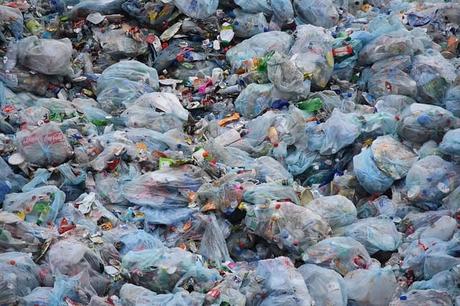Amidst growing concern for plastic wastes in international communities, Indonesia will return eight containers full of household rubbish to Australia as the material was declared “highly contaminated” for recycling by the inspectors.
After south-east Asian nations decided to stop being the dumping grounds for overseas waste, this is the latest announcement in that series.

The containers of paper from Australia were contaminated by used cans, plastic bottles, electronic waste, old bottles of engine oil and loose shoes, Indonesian customs officials said. Some of this was acknowledged as deemed “B3” (an abbreviation of bahan berbahaya dan beracun) which denotes hazardous and toxic material.
The gloved customs officials showed examples of the offending material that includes even used nappies and soft drink cans by opening up the containers for the press on Tuesday morning.
The customs officials said at Tanjung Perak port in Surabaya that eight containers containing 210.3 tonnes of waste would be returned.
The containers from Brisbane arrived in Surabaya, Indonesia’s second-largest city being sent by a shipping company in mid-June.
Customs in Surabaya said in coordination with the Indonesian import firm PT MDI that the offending material would be re-exported immediately.
The customs office had coordinated with related government ministries, including trade and environment to discuss the seriousness of the matter and said that it was obliged to protect Indonesia and its environment from imports of B3 waste.
Since China banned imports of foreign plastic waste last year, global recycling was facing chaos, and developed nations were struggling to find dumping grounds for their rubbish. After the introduction of new standards that ruled out 99% of what Australia used to export, Australian Recycling faced a new crisis. Although huge quantities have been redirected to south-east Asia then on, opposition in the region is growing to handle the exported waste.
After China, India also banned all kinds of imports of foreign solid plastic waste and scrap, with effect from March, to “close the gap between waste generation and recycling capacity.”
In May, the Malaysian government declared to return up to 100 tonnes of Australian waste which was too contaminated to recycle. It was forming a part of a shipment of 450 tonnes of imported plastic waste which it returned to countries across the globe.
Yeo Bee Yin, the environment minister of Malaysia, announced that 3,000 tonnes of waste were contaminated. “Malaysia will not be the dumping ground of the world,” Yeo said. “We will fight back. Even though we are a small country, we can’t be bullied by developed countries.
“What the citizens of the UK [and other countries] think they have sent for Recycling are actually being dumped in our country … Malaysians have a right to clean air, clean water and a clean environment to live in, just like citizens of developed nations.”
Last month, The Philippines also returned about 69 containers of rubbish to Canada, ending the diplomatic row between the two countries.
Indonesia announced to send back 49 containers full of waste to France and other developed nations last week.
The shocking images of Southeast Asia’s waste-clogged rivers and dead sea creatures found with their stomachs full of refuse in kilos have spurred the concern over plastic pollution globally. According to Environmental group WWF, out of about 300m tonnes of plastic produced each year, most of them end up in landfills, waterways or oceans.
Besides the repatriation of unsanctioned waste, Indonesia itself is fighting with the issues of its own huge domestic rubbish. Although many across the archipelago continue to burn toxic waste as a form of disposal, yet tonnes of trash gets dumped in the country’s rivers and oceans each year. After China, the second-largest global contributor to marine plastic waste is Indonesia.
The official comment from the government of Australia was sought on the matter.

